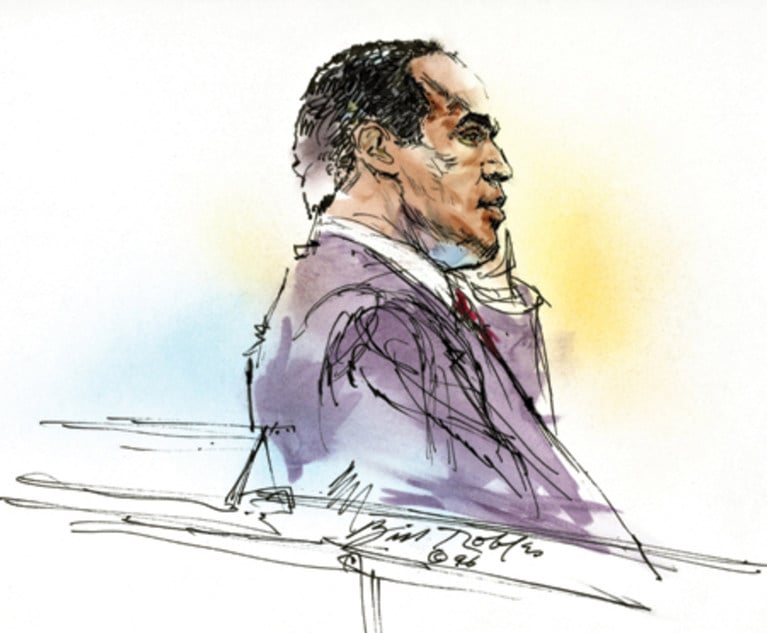Lean Adviser: The O.J. Simpson Defense Strategy Revisited
In this Lean Adviser lesson, 29 years on from the trial and following the April 2024 passing of O.J. Simpson, we revisit defense attorney Johnnie Cochrane's now infamous quote, and we ask the question: Was this ploy madness or masterful?
April 22, 2024 at 10:40 AM
5 minute read

With the passing of OJ Simpson, we go back to 1995 and "the most dramatic courtroom verdict in the history of Western civilization," as The Washington Post called it.
"If the glove doesn't fit, you must acquit."
Was there ever a more memorable instruction given to a jury? On the face of it, this looks like a risky piece of grandstanding.
In this Lean Adviser lesson, 29 years on from the trial and following the April 2024 passing of O J Simpson, we revisit defense attorney Johnnie Cochrane's now infamous quote, and we ask the question, was this ploy madness or masterful?
It worked in securing an acquittal, which many observers thought unlikely. But why did it work and what can we take away from it? Let's break this down into a lean tip sheet for trial lawyers everywhere:
1. Ask the right question: For a law exam the right question to a jury would have been "Are you satisfied beyond all reason doubt that the defendant was guilty?" But for a real-life trial lawyer the right question was "does the glove fit?"
2. Give answers dressed as questions: In classroom theory, you should give the jury questions to resolve, with suggested right answers. But 'you must acquit' is not a question or even a suggestion. It's an instruction. It's clear, assertive and simple.
3. Use strategic storytelling: We often talk in Lean Adviser about the power of storytelling, because that's what people engage with and remember. But what story? This glove story was about something helpful to Cochrane. The fact that it didn't actually prove anything is strategically irrelevant. The point is, it diverted attention away from many other more awkward stories, like how the knife got there, Simpson fleeing the scene and the rest.
4. Follow the principles of lean: One of the tenets of lean law is to identify just what matters and focus on that. Communicate it within the team and to the client. Then find a way to express it concisely but clearly.
Litigator's Voice: Framing Closing Arguments
Given this week's topic, we thought we'd highlight an archived article from The Texas Lawyer on closing arguments that discusses the O.J. Simpson trial and the defense strategy.
The article, authored by Randy Gordon, Managing Partner of the Dallas office of Duane Morris, talks about causation and motive, and "when presented with a narrative of 'what really happened' at trial, jurors want to know more than this happened, then that happened, then the next thing happened. They want to know the reasons — the motivation — for why these things happened at all."
Gordon points to the jury instruction during the Simpson trial:
"Motive is not an element of the crime charged and need not be shown; however, you may consider motive or lack of motive as a circumstance in this case. Presence of motive may tend to establish guilt. Absence of motive may tend to establish innocence. You will therefore give its presence or absence, as the case may be, the weight to which you find it to be entitled."
The prosecution tried to use Simpson's prior acts and character flaws ("extreme rage, jealously and violence") to prove that Simpson was capable of murder. However, Gordon wonders if "… these prior acts and character flaws really supply a motive."
Simpson's lawyer, Johnny Cochrane, rebutted the prosecution by saying that they "substituted character evidence for motive evidence. His goal in exposing this flaw was to underscore that although motive is not an element of the crime, it's an element of a story."
Gordon contrasts this with the closing argument by the plaintiff's lawyer in the civil case against O.J. "He wants to try to convince you that he wasn't feeling rejected, he was the one who rejected Nicole. Now, why did he want to convince you of that? Because if he's the rejected one, then maybe he has a motive to retaliate," Daniel Petrocelli told the jury.
"In explicitly linking Simpson's anger and frustration at a moment and time, Petrocelli embraces the role of the detective in a classic detective story — invariably starting with a dead body," Gordon writes. "A masterful closing argument like Petrocelli's is in the nature of an inquest, which, as Peter Brooks says of detective fiction, 'exists in order to realize, to understand, to make present the story that led to the crime, so that the story in the present exists to retrieve the story of the past.' Colored in this manner, the lawyer (especially the one with the burden of proof) can be said — in closing argument — to perform a retracing of an actor's steps, to an end."
Read more on the lean perspective of the O.J. trial and get more lean tips for trial lawyers in Lean Adviser Legal.
Read more on framing closing arguments here and gain insights from GCs by subscribing to Corporate Counsel. And gain access to lessons read by General Counsel on Lean Adviser GC.
NOT FOR REPRINT
© 2025 ALM Global, LLC, All Rights Reserved. Request academic re-use from www.copyright.com. All other uses, submit a request to [email protected]. For more information visit Asset & Logo Licensing.
You Might Like
View All
Inside Track: AI Is Sure to Fray Big Law's Devotion to Billable Hour

Legal Departments Dinged for Acquiescing to Rate Hikes That 'Defy Gravity'
4 minute read
Legal Departments Gripe About Outside Counsel but Rarely Talk to Them
4 minute read
As Costs and Workloads Mount, Law Departments Turn to Tech and Workflow Overhauls
3 minute readLaw Firms Mentioned
Trending Stories
- 1Big Law Firms Sheppard Mullin, Morgan Lewis and Baker Botts Add Partners in Houston
- 2Lack of Jurisdiction Dooms Child Sex Abuse Claim Against Archdiocese of Philadelphia, says NJ Supreme Court
- 3DC Lawsuits Seek to Prevent Mass Firings and Public Naming of FBI Agents
- 4Growth of California Firms Exceeded Expectations, Survey of Managing Partners Says
- 5Blank Rome Adds Life Sciences Trio From Reed Smith
Who Got The Work
J. Brugh Lower of Gibbons has entered an appearance for industrial equipment supplier Devco Corporation in a pending trademark infringement lawsuit. The suit, accusing the defendant of selling knock-off Graco products, was filed Dec. 18 in New Jersey District Court by Rivkin Radler on behalf of Graco Inc. and Graco Minnesota. The case, assigned to U.S. District Judge Zahid N. Quraishi, is 3:24-cv-11294, Graco Inc. et al v. Devco Corporation.
Who Got The Work
Rebecca Maller-Stein and Kent A. Yalowitz of Arnold & Porter Kaye Scholer have entered their appearances for Hanaco Venture Capital and its executives, Lior Prosor and David Frankel, in a pending securities lawsuit. The action, filed on Dec. 24 in New York Southern District Court by Zell, Aron & Co. on behalf of Goldeneye Advisors, accuses the defendants of negligently and fraudulently managing the plaintiff's $1 million investment. The case, assigned to U.S. District Judge Vernon S. Broderick, is 1:24-cv-09918, Goldeneye Advisors, LLC v. Hanaco Venture Capital, Ltd. et al.
Who Got The Work
Attorneys from A&O Shearman has stepped in as defense counsel for Toronto-Dominion Bank and other defendants in a pending securities class action. The suit, filed Dec. 11 in New York Southern District Court by Bleichmar Fonti & Auld, accuses the defendants of concealing the bank's 'pervasive' deficiencies in regards to its compliance with the Bank Secrecy Act and the quality of its anti-money laundering controls. The case, assigned to U.S. District Judge Arun Subramanian, is 1:24-cv-09445, Gonzalez v. The Toronto-Dominion Bank et al.
Who Got The Work
Crown Castle International, a Pennsylvania company providing shared communications infrastructure, has turned to Luke D. Wolf of Gordon Rees Scully Mansukhani to fend off a pending breach-of-contract lawsuit. The court action, filed Nov. 25 in Michigan Eastern District Court by Hooper Hathaway PC on behalf of The Town Residences LLC, accuses Crown Castle of failing to transfer approximately $30,000 in utility payments from T-Mobile in breach of a roof-top lease and assignment agreement. The case, assigned to U.S. District Judge Susan K. Declercq, is 2:24-cv-13131, The Town Residences LLC v. T-Mobile US, Inc. et al.
Who Got The Work
Wilfred P. Coronato and Daniel M. Schwartz of McCarter & English have stepped in as defense counsel to Electrolux Home Products Inc. in a pending product liability lawsuit. The court action, filed Nov. 26 in New York Eastern District Court by Poulos Lopiccolo PC and Nagel Rice LLP on behalf of David Stern, alleges that the defendant's refrigerators’ drawers and shelving repeatedly break and fall apart within months after purchase. The case, assigned to U.S. District Judge Joan M. Azrack, is 2:24-cv-08204, Stern v. Electrolux Home Products, Inc.
Featured Firms
Law Offices of Gary Martin Hays & Associates, P.C.
(470) 294-1674
Law Offices of Mark E. Salomone
(857) 444-6468
Smith & Hassler
(713) 739-1250






